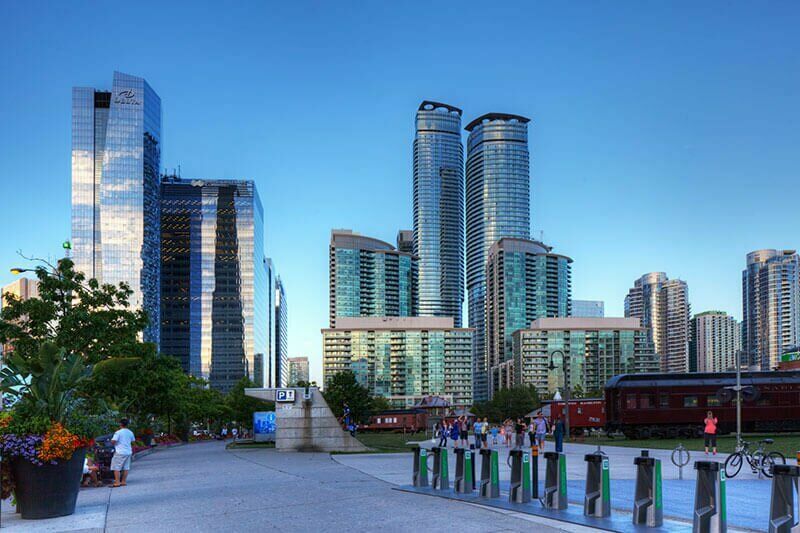
If you want to understand why densification projects are important consider this: today, roughly 54 percent of the world’s population live in cities. By 2050, that number is expected to increase to nearly 66 percent. Think about that for a second. By 2050, there will be 6.6 billion people living in urban centres around the world. Cities are going to have to find ways to fully utilize and optimize all available space if they are going to contend with such an enormous increase in population, and the subsequent demand for housing it entails. Below are some of the ways in which densification helps people and cities minimize their environmental footprint.
One of the biggest problems with urban sprawl is that it encourages, even necessitates a culture where everyone drives their car everywhere, all the time. Densification projects, including condo living, combined with denser commercial development, mean that cities and communities become more self contained. Instead of living in sparsely populated, underdeveloped areas, denser areas, especially ones that are zoned for mix residential and commercial, can become one-stop-shops for residents, cutting down on the amount of driving done.
Another meaningful difference made by higher density condo living in a city like Toronto is the amount of space one occupies. Denser areas mean space is at a premium which means smaller living spaces for people. While many people find the idea of living in what are sometimes called “shoeboxes” unpleasant, the fact remains that by cutting down on the space your home takes up, you are cutting down on energy consumption and land use.
Condo living in Toronto, and densification urban planning projects anywhere else for that matter, and realizing carbon footprint reductions comes with a catch. Studies done indicate that in order for a city, or an individual to make a meaningful environmental impact through denser living, certain things must also come into play. The culture of consumption many of us are used to must done away with, and we must be willing to forfeit heating building common areas (such as parking lots, party rooms etc.) - which use up a lot of energy, studies indicate.
As the world becomes an almost entirely urban space, we must ask ourselves how we are going to realistically, and responsibly accommodate all of those people looking to make a life in cities. If you are already a condo owner in Toronto, or are soon to be one, contact Condo KANDY today and lets us help you plan out flooring and window treatment options that will make condo living in the 21st century a thing of beauty.
References
(2010). “Does high-density life have a bigger ecological footprint? And why?” Human Transit. Retrieved from: https://humantransit.org/2010/03/does-highdensity-life-have-a-bigger-ecological-footprint-and-why.html
(2014). “World’s population increasingly urban with more than half living in urban areas.” The United Nations. Retrieved from: http://www.un.org/en/development/desa/news/population/world-urbanization-prospects-2014.html
Questions to ask when buying a condo Retrieved from: https://www.moneycrashers.com/questions-ask-buying-condo/
"*" indicates required fields
